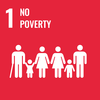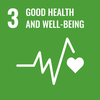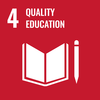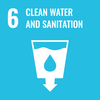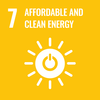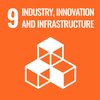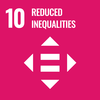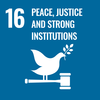In September, as the 77th session of the United Nations General Assembly commences, instead of focusing on a dedicated Sustainable Development Goal the UN turns to the Agenda 2030 project as a whole to reflect on progress and on how we can improve in the last 7.5 years before the year 2030. Agenda 2030, its 17 SDGs and 169 Targets are a universal call to action to end poverty, protect the planet, and improve the lives and prospects of everyone, everywhere.
While steady progress has been made in many realms, globally, we were not on track to achieve the ambitious but necessary goals by 2030. Covid-19 has threatened to set us back and even further. Having entered the second half of 2022 we have just under 7.5 years to deliver our promises to people, and planet – this decade will need to see structural changes and sharp improvements. Connoted as the Decade of Action we are in the last, and vital phase of delivering Agenda 2030.
Antonio Guterres, the UN Secretary-General has called for multi-layered action across the various levels of society: Global action to unite ambition, resources, and knowledge, local action to ensure policy and political frameworks for implementation of innovation, and people action for civil society, academia, the private sector, and especially youth to come together and generate momentum for the transformation needed.
As the community of a world-leading university like UCL, we can be this momentum. Taking people action through volunteering is a powerful way to ensure that the Sustainable Development Goals are on the political agenda, and that there is tangible action being taken towards fulfilling them. It is also a way to take accountability for our privileged position and give back to people, and planet.

UCL and Agenda 2030
UCL is using its global intelligence and reach to support Agenda 2030 in as many ways as possible. This includes research, policy advocacy, as well as international collaboration on project delivery that support various Sustainable Development Goals.
Through world-leading research, UCL ensures the accessibility of intelligence and information by sharing best practice. A Team of UCL researchers have been engaged in a multidisciplinary project that studies nature-inspired engineering solutions to purifying and desalinating water. Contributing to SDG#6 Clean Water and Sanitation, the findings of the research can contribute to providing water deprived areas with clean drinking water through either using seawater or treating wastewater.

Through investment, the university can use its capital to further causes that work for a more inclusive and sustainable world. They invest in talent and innovation just like they did with UCL spin out Carbon Re. Carbon Re is a joint project between experts at UCL and Cambridge that uses AI to help large production plants reduce their emissions. UCL’s Technology Fund together with Cambridge enterprises invested £1 million into the engineering and commercialisation of the software. When in operation, the investment will further the aim of SDG#9 Industry, Innovation, and Infrastructure of promoting sustainable industry.
Following through all the way to delivery, UCL is directly contributing to the implementation of plans and therefore Agenda 2030. The UCL-based Global Disability Innovation Hub has worked with multilateral organisations and local governments to better access to assistive technology such as wheelchairs. They carried out a successful trial in Kenya whereby they innovated and patented a new wheelchair. The project is working with a further 15 countries to trial and find local solutions. New technologies such as 3D printing is making the provision of assistive technology cheaper and more inclusive thereby furthering SDG#10 Reduced Inequalities within and between countries.
Support a goal-relevant charity
For those wanting to contribute to the global agenda of ending poverty, creating a healthy, inclusive society, and a sustainable economy, there are many ways to get involved. A career centred around one or more SDGs is a life dedicated to a worthy cause. As students, starting out with volunteering your time to projects and initiatives working towards a better world is the best possible start.
There are many important ways we can contribute:

Through tangible action. As we enter into the Decade of Action delivering on plans and promises becomes ever so vital. With Heath Hands you can (literally) get your hands dirty and do something good for people and planet. They are an organisation who conserve and protect one of London’s most important and biodiverse green spaces – Hempstead Heath and surrounding green areas. Throughout their ‘Go Wild about Golders Hill Park’ event you will work with alongside a Ranger to help them with practical nature and wildlife conservation, and habitat management tasks. While picking up litter and gardening, you will learn about the area and get some exercise done too! Greenery such as Hempstead Heath’s is important not only to ensure that nature thrives but for people’s mental health too who find refuge and relaxation under the lush trees of the area.

Through empowering people. The Green Shoots Foundation is a charity working towards Sustainable Development by promoting holistic programmes that combine Economic Development with Food & Agriculture, Education or Medical Aid. They are putting on a one-off volunteering event for UCL students specifically. As part of our Consultancy Challenge the Foundation has developed a prototype of a natural, biodegradable sanitary pad. The prototype is intended to serve as the basis for production of affordable, environmentally sustainable, socially responsible sanitary pads in Cambodia, by Cambodian women, for Cambodian women. During this One-off opportunity you will help the Green Shoots team further develop the project and the product so it can then contribute to the empowerment of Cambodian women through providing them with hygiene products and employment in production.
Read about the Consultancy Challenge here and Mya’s experience here.

Through fundraising. Cody Dock, a conservation charity based in Lea River Park working to nurture and preserve the river while also bringing it closer to people through culture and recreational activities. Their one-day volunteering event will introduce you to the charity’s work, the river area, and a joyfully sustainable way to raise funds. You will help the Cody Dock team make soap and paper out of recycled materials and plants native to the Lea River Park. The products you make will then be sold to fund the charities conservational and cultural volunteer programmes throughout the year. Their work and ethos are important to ensure that our cities, like London remain livable and continues to become more sustainable.
And as ever, if any of these one-off events spark an interest in deeper involvement with the charity in question’s work, there is always space for deeper collaboration and involvement.
As aptly demonstrated above by the many ways UCL is contributing to the delivery of Agenda 2030 and the even more ways an individual can get involved: No matter what your strengths are, there will be a need for them somewhere. We have less than 10 years to ensure that really no one is left behind and this requires all hands on deck – including yours. With the fresh start to the academic year why not give a fresh try to volunteering too?

